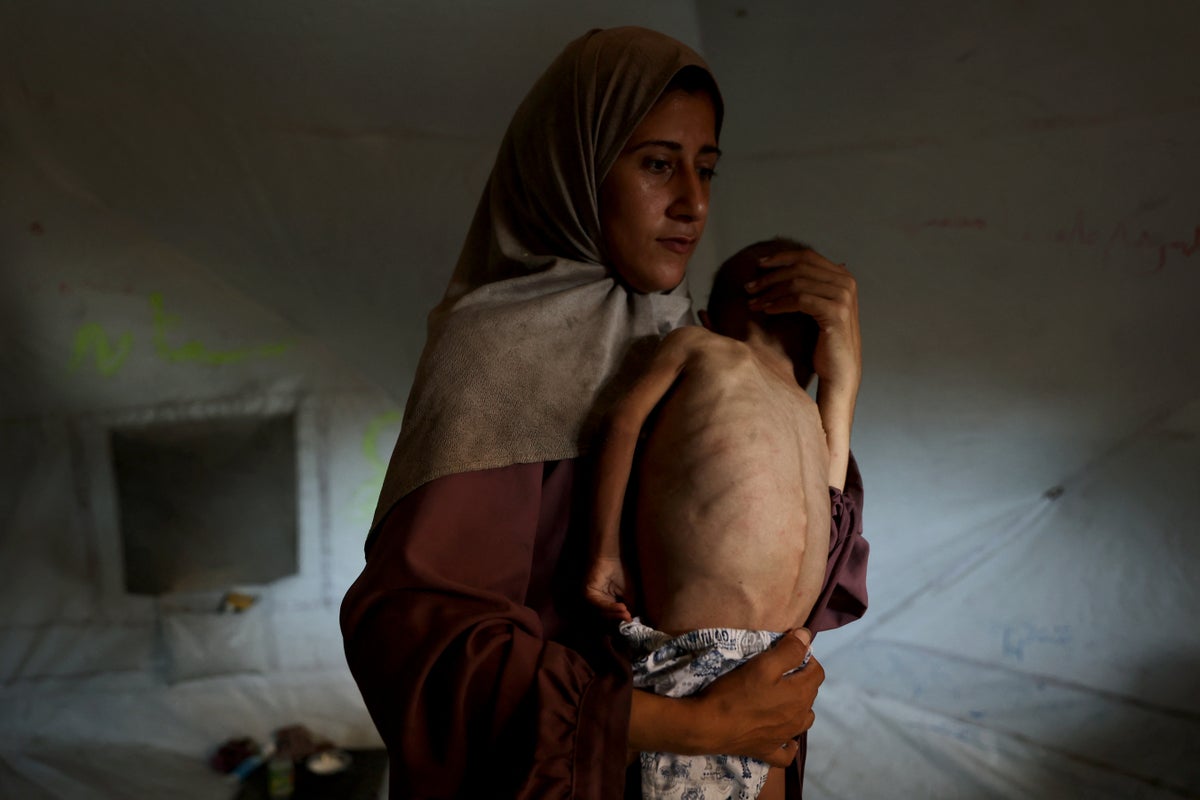Palestinians are beginning to resemble “walking corpses”, a United Nations official said on Thursday as Sir Keir Starmer called the starvation unfolding in Gaza “unspeakable and indefensible”.
Humanitarian workers in the territory are seeing children who are “emaciated, weak and at high risk of dying” without urgent treatment, said Philippe Lazzarini, head of the UNRWA relief agency.
The prime minister is due to hold an emergency call with France and Germany on Friday to push for aid – and a ceasefire. “We are witnessing a humanitarian catastrophe,” he said. “The suffering and starvation unfolding in Gaza is unspeakable and indefensible. While the situation has been grave for some time, it has reached new depths and continues to worsen.”
The number of people starving in Gaza is reported to have increased dramatically in recent days; most of the 113 hunger-related deaths recorded there so far have occurred in recent weeks, and 82 of those who have died were children, according to Palestinian health officials.
Israel has imposed heavy restrictions on the amount of food and aid allowed to enter the territory, limiting aid to a handful of trucks each day following an 11-week total blockade earlier this year. UN officials say the aid delivered into the strip is a drop in the ocean in relation to what is needed.
“We all agree on the pressing need for Israel to change course and allow the aid that is desperately needed to enter Gaza without delay,” Sir Keir said.
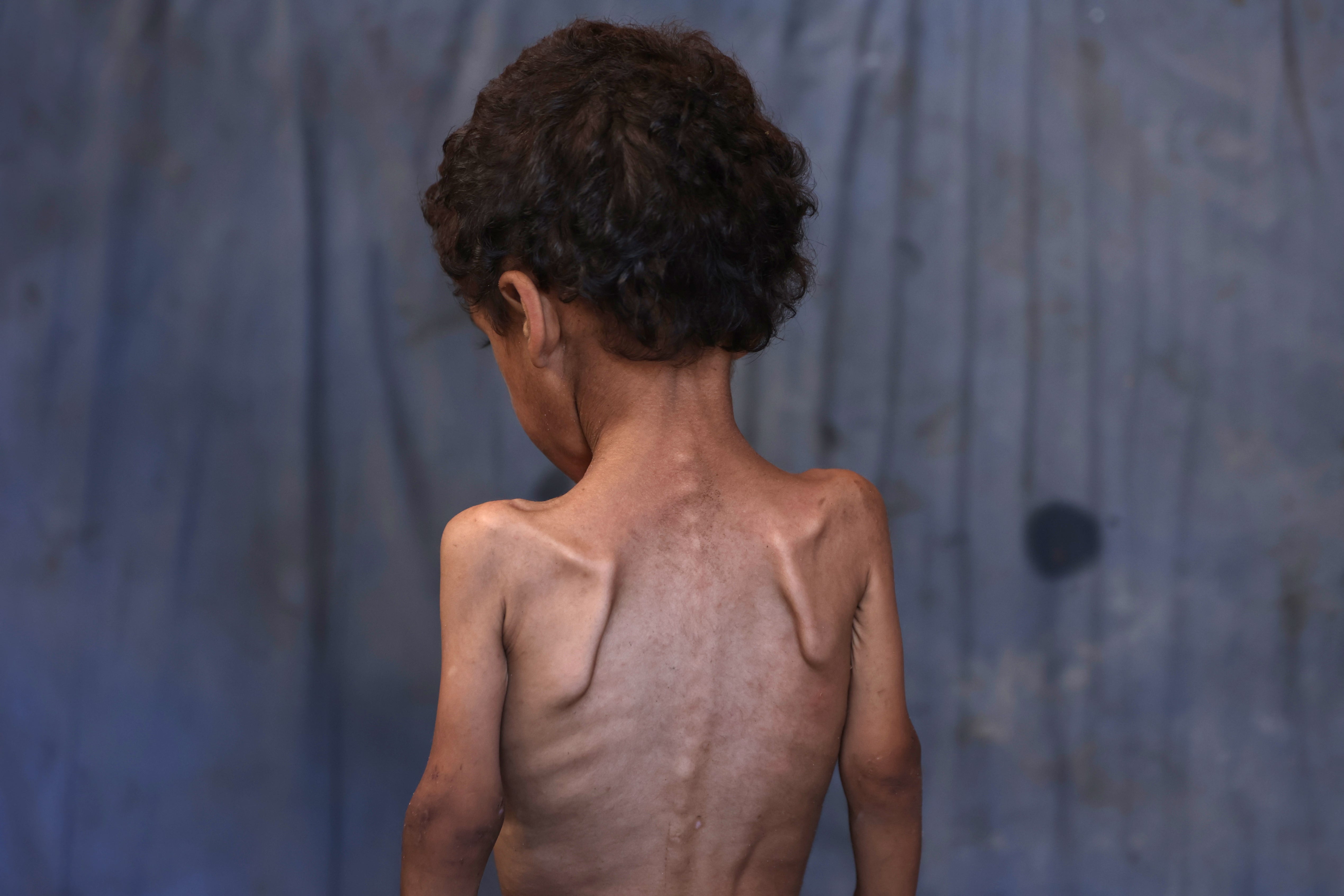
Mr Lazzarini said a UNRWA worker had described people in Gaza as “neither dead nor alive – they are walking corpses”. He said the agency has the equivalent of 6,000 loaded trucks of food and medical supplies in Jordan and Egypt, which have not yet been allowed into the territory.
“Families are no longer coping: they are breaking down, unable to survive. Their existence is threatened,” he said.
Israeli forces have killed hundreds of Palestinians who were attempting to secure food from a limited number of aid trucks. The killings have drawn widespread condemnation, including from many of Israel’s own allies.
As more than 100 human rights groups and charities demanded in a letter on Wednesday that more aid be allowed in, Palestinians living in Gaza said they had been forced to trade personal items, such as gold jewellery, for flour.
“We are living in hunger and daily suffering, as prices have risen in an insane way that no Gazan citizen, whether employed or unemployed, can bear, in a way that is beyond comprehension,” said Wajih al-Najjar, 70, from Gaza City, the breadwinner for a family of 13.
“People are forced to go to death in search of some aid,” he told The Independent, lamenting the exorbitant price of flour, which he says has shot up from 35 shekels (£7.74) to up to 180 shekels (£39.80) per kilo.
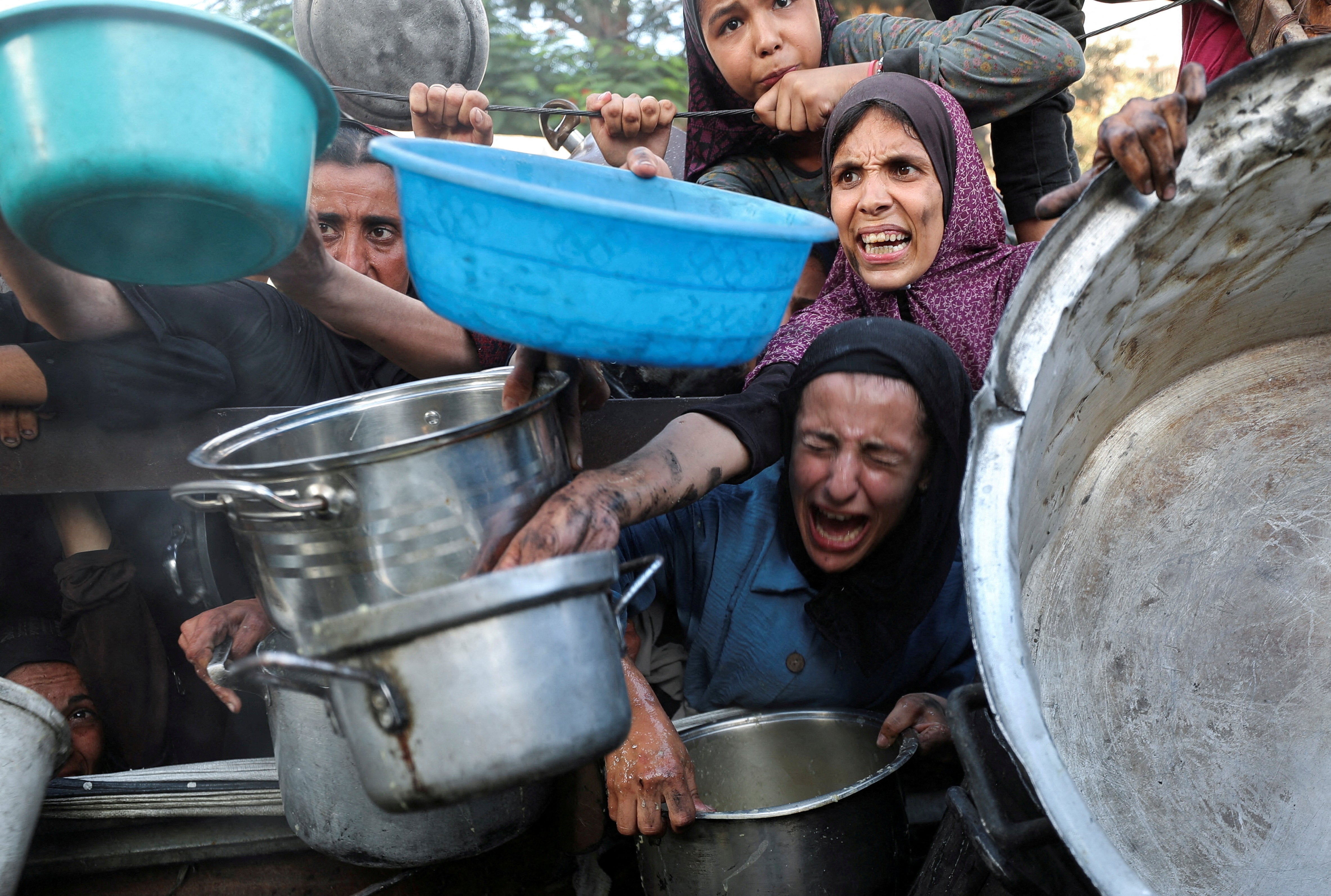
Mr Najjar, who has lost one quarter of his bodyweight – dropping from 85kg to 62kg – says he can not get a full meal for himself. “So what about children who need food more than three times a day?” he said.
Meanwhile, major broadcasters and news agencies, including the BBC and Reuters, issued a joint statement to say that their journalists on the ground in Gaza are also facing the “threat of starvation”.
“We are desperately concerned for our journalists in Gaza, who are increasingly unable to feed themselves and their families,” it read. “For many months, these independent journalists have been the world’s eyes and ears on the ground in Gaza. They are now facing the same dire circumstances as those they are covering.
“Journalists endure many deprivations and hardships in war zones. We are deeply alarmed that the threat of starvation is now one of them.”
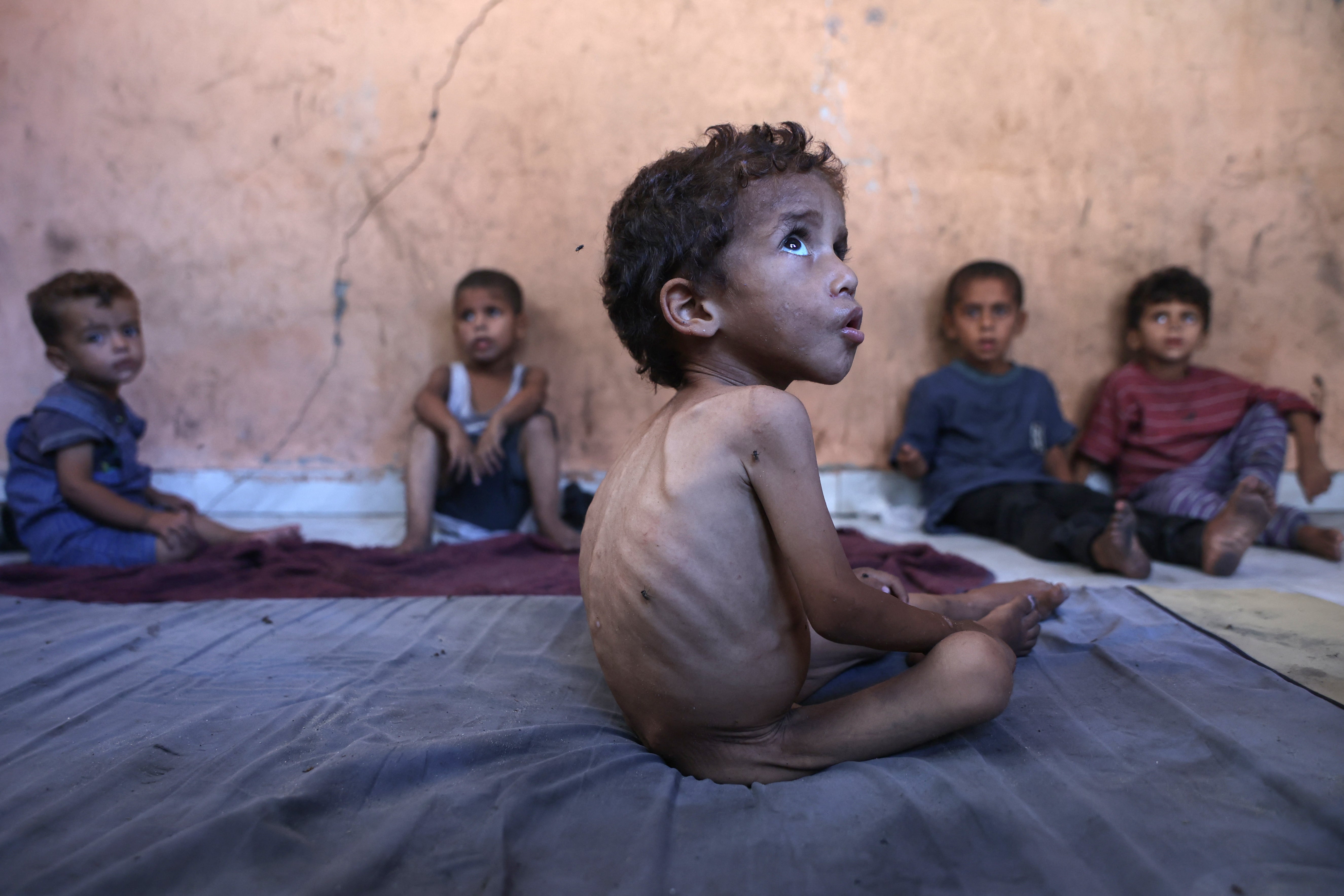
Prices continue to rise beyond control, and food scarcity has soared to an unprecedented level in the Gaza Strip, in the 21st month of a destructive Israeli invasion and bombardment that Palestinian health officials say has killed more than 60,000 people.
The war and invasion began on 7 October 2023 in response to attacks perpetrated on Israel by Hamas militants, who killed 1,200 people and captured at least 250 hostages.
Ihab Abdullah, a 43-year-old university lecturer who is the breadwinner for nine family members, said that every night before he goes to sleep, he asks: “How will I provide for my children today? I can bear the hunger, but what about my children?”
“We have become unable to buy or find food in the markets. We live in daily hunger, because the most needed commodity, flour, is not available in sufficient quantities. We are in a situation where we cannot buy food, even if we have money. Those who have money and those who do not have money are the same. Purchasing value has disappeared.”
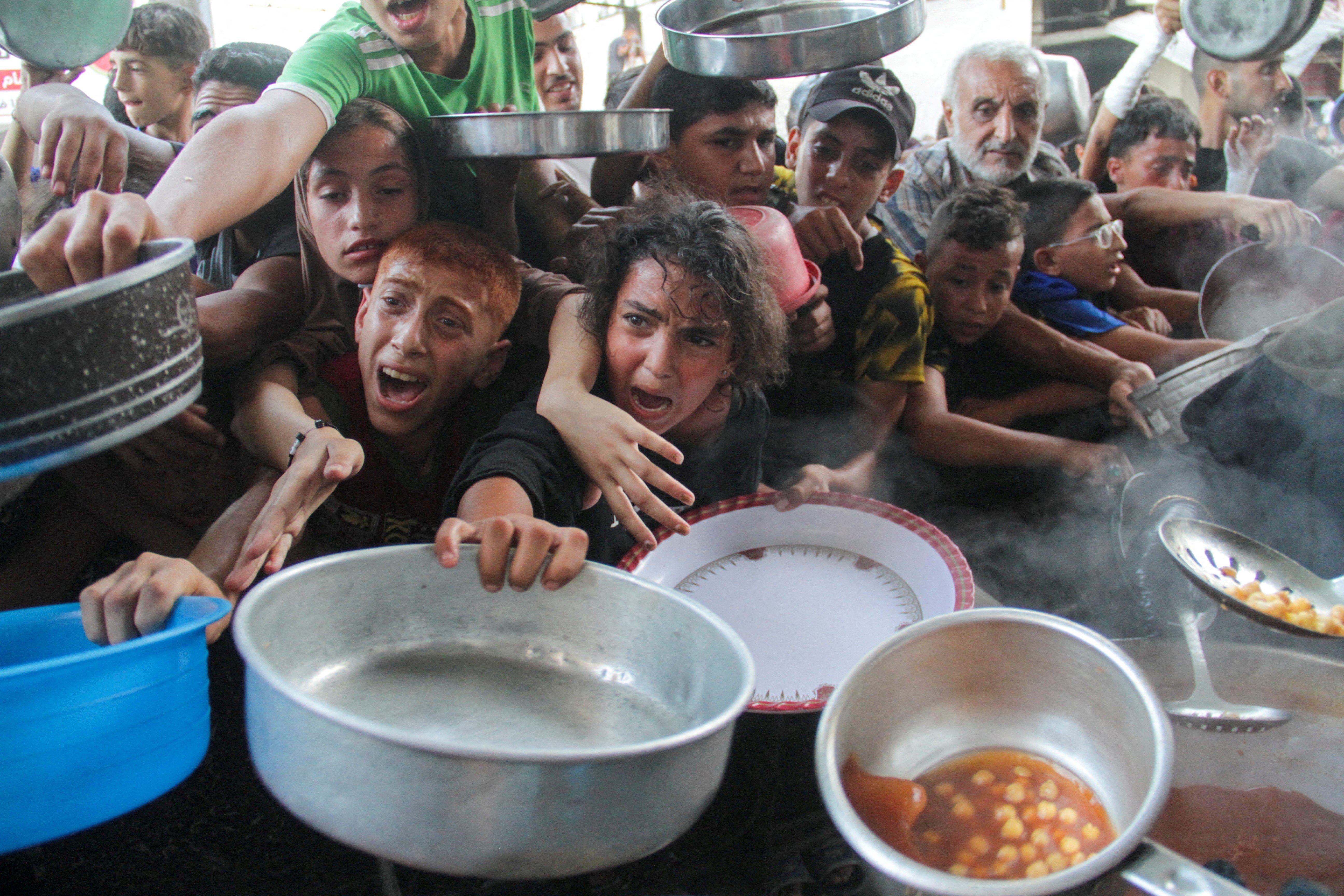
Younis Abu Odeh, a 32-year-old who is displaced in Gaza, says he feels as if Palestinians have been “put on a chicken farm and starved”.
“We are living through a war of extermination, famine, and psychological warfare,” Mr Odeh told The Independent. “A war of displacement, a war of tents, a war of heat and sun.”
The Israeli government insists it is not causing a famine. Spokesperson David Mencer said that the “manmade shortage” of food has been “engineered by Hamas”.
Mr Mencer said on Wednesday that more than 4,400 aid trucks had entered Gaza between 19 and 22 July, containing food, flour and baby food.
The deepening crisis came as Israel brought its delegation home from the Gaza ceasefire talks on Thursday after Hamas delivered a new response to a proposal for a truce and a hostages deal.
The Israeli prime minister’s office thanked mediators for their efforts and said the negotiators were returning home for “further consultations”. Earlier it said Israel was reviewing the response from Hamas.
In his statement, Sir Keir said: “It is hard to see a hopeful future in such dark times. But I must reiterate my call for all sides to engage in good faith, and at pace, to bring about an immediate ceasefire, and for Hamas to unconditionally release all hostages. We strongly support the efforts of the US, Qatar and Egypt to secure this.
“We are clear that statehood is the inalienable right of the Palestinian people. A ceasefire will put us on a path to the recognition of a Palestinian state and a two-state solution, which guarantees peace and security for Palestinians and Israelis.”
